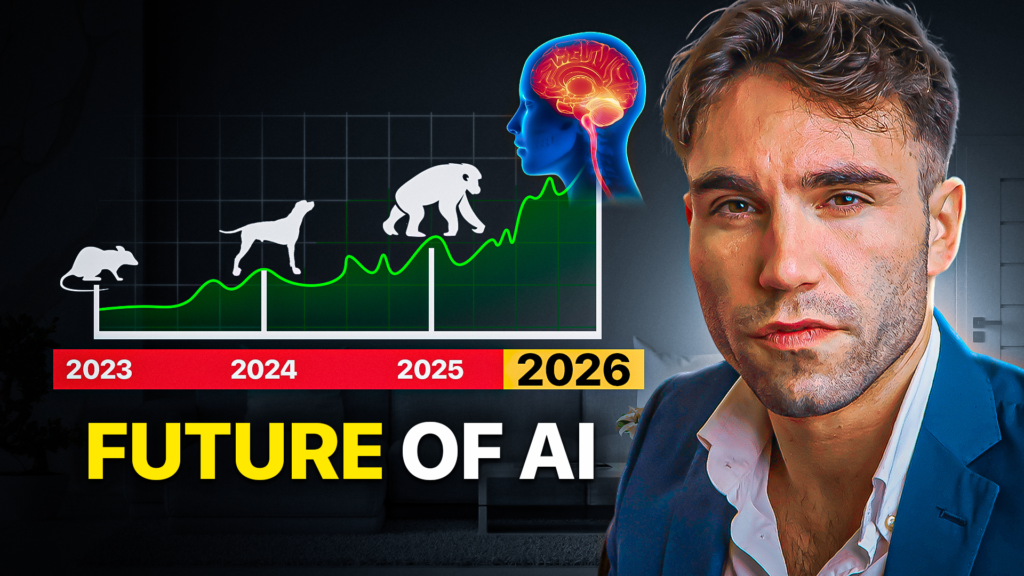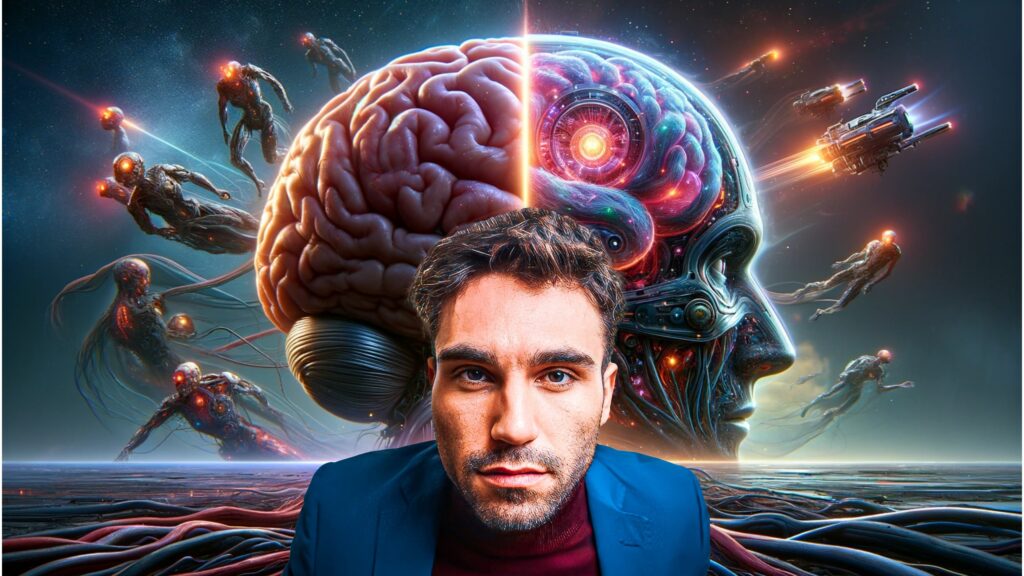In this blog post i’ll go through
- What Are AI Agents?
- What’s the difference between AI Agents and Chatbots?
- What’s the difference between AI Agents and Deep Learning algorithms?
- Why are they key to your business success?
What Are AI Agents?
Generative AI-powered agents are systems that can use their intelligence to reason through a problem, create a plan to solve it, leverage on a set of tools to execute on that plan, re-evaluate the plan if issues are during execution, while leaning on a memory for contextualized information retrieval
- So Agents, in 2023, are systems that use ChatGPT-like intelligence under-the-hood to orchestrate their behaviour.
- This intelligence, in 2023, takes the form of Large Language Models (LLM). ChatGPT is a LLM.
- The LLM is considered the core module of the system.
- The LLM orchestrate the Memory, Tools and Planning components
So, you provide the AI Agent with the right tools and memory, you specify a goal .. and … Arrivederci ! It does the rest.
What’s the difference between AI Agents and Chatbots?
Chatbots historically were preprogrammed to redirect users to certain paths/answers given the label they could associate with the question being posed by the user.
Thanks to Generative AI we can now build more intelligent forms of chatbots, that don’t need to be fully predefined as before.
These new iteration of chatbots can leverage on LLMs to elaborate fairly complex answers and lean on external documentation to come up with the right answer. Here the concept of AI Agent starts to take shape.
Infact, as we want our system to be able to lean on more and more data, we need to provide it with the tools to interact with more and more data.
For example, we might want it to act on structured tabular form of data, as well as PDFs, as well as online data and much more.
So it might be useful to provide our system with:
- a tool to write its own custom code in order to access the tabular data
- a tool it can use to perform online searches
- a tool to read from PDFs
- etc etc
Do you start to understand the difference?
Having all these tools at its disposal and a powerful LLM to understand how to use them, our system can now even perform calculations on the data being provided.
For example, it might perform some analytics on the data in order to come up with the right answer for the user.
And it’s actually much much more sophisticated than this.
Our AI Agent can leverage on its LLM component to decompose the question from the user into smaller problems and make a N-step plan in order to solve them (planning module).
To execute on this plan our AI Agent can leverage on its tools to reach its goal.
Cool right ?
What’s the difference between AI Agents and Deep Learning algorithms?
AI Agents core module, in 2023, (the LLM) is actually made out of a Deep Learning model, trained on a very large amount of data.
But, this is not the end of the story.
Deep Learning algorithms can even become tools in the toolbelt of our AI Agent.
For example, you can have your AI Agent to leverage on algorithms you have trained to forecast specific time-series, so to make it more performant on that task.
Why are they key to your business success?
AI Agents can completely redefine the way your customers interact with your products, services, solutions.
A few examples here:
- In cosmetics, you can have an AI Agent developing personalized routines for the user, leveraging on dermatological publications, social trends, commercial information, user biological data, user preferences, influencers reviews etc etc
- If you install industrial equipments at your clients plants you can make your assets talk to your clients, making each asset managed by an AI Agent, that can now perform reasoning on the asset internal/external data, becoming a proactive assistant for preventive maintenance, or for providing insightful scenarios for the client
- If you offer strategy consulting services to your clients, you could have an AI Agent to forecast the clients CashFlow, providing what-if scenarios where qualitative insights mix with quantitative insights and where business principles applied by the Agent unfold each scenario in the future by n-steps.
- If you have provide clients with services of other types, you could have an AI Agent planning and executing a report of your work for each client, or you could leave the AI Agent to the clients so they interact with it to understand the impact of your recommendations in different scenarios
- If you provide B2C services, you could have an AI Agent for customers support, where each time the Agent interact can provide the customers with an easy-to-follow tutorial, crafted real-time for their particular needs.
- If you manufacture heat pumps or thermostats you could have an AI Agent integrated with your products to interact with your customers via mobile app, or via whatsapp or via telegram (or any other form), and to proactively propose personalized scenarios (“Ei Bob, i have just prepared these 3 scenarios for heating up the house next week given that you have just started to train at the gym and get back later in the evening. Which one would you prefer?”)
- If you do wealth management you could have an AI Agent to automatically create reports for your customers, where in each report it might present an investment scenario, with an explicit narrative to support it, with pros and cons, and maybe even the economic principles that justify that investment
- SOOOOO many more cases! Reach out to [email protected] to know more!!



